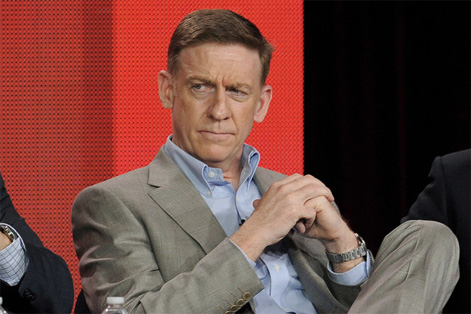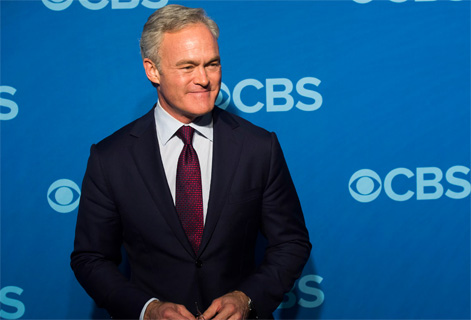|
|
|
|
|
|
 |
|
|
“Over
the past
months,
it has
also
become
clear
that I
would
not be
allowed
to run
the show
as I
have
always
run it,”
Bill
Owens
wrote in
a memo
Tuesday.
(Chris
Pizzello/AP) |
| |
Behind-the-Scenes
Drama at
"60
Minutes"
Sparks
Rare
On-Air
Rebuke
Simon
Weinstein
- Media
Matters/Entertainment
Tell Us
USA News
Network
NEW YORK
-
Longtime
viewers
of 60
Minutes
received
an
unprecedented
glimpse
into
internal
network
conflicts
during
Sunday’s
broadcast,
as
correspondent
Scott
Pelley
revealed
that
Executive
Producer
Bill
Owens
resigned
last
week
over
claims
of
editorial
interference
by
Paramount,
CBS’s
parent
company.
Pelley’s
On-Air
Declaration
In the
closing
segment,
Pelley
framed
Owens’
departure
as a
principled
stand:
“For 57
years,
60
Minutes
has
tackled
hard
stories-from
Gaza to
the
Trump
presidency.
Bill
ensured
they
remained
fair and
fact-driven,”
he said.
“But
Paramount’s
merger
process-pending
Trump
administration
approval-has
brought
new
oversight.
No
stories
were
killed,
yet Bill
felt
independence
was
compromised.
Honest
journalism
demands
autonomy.”

Pelley
emphasized
Owens’
integrity,
concluding
pointedly:
“He
proved
by
resigning:
he was
always
the
right
leader
for this
show.”
(Charles
Sykes/Charles
Sykes/Invision/AP)
The
Broader
Conflict
The rare
public
critique
underscores
tensions
at CBS
News,
which
has
clashed
with the
Trump
administration
since
2023.
Last
fall,
Trump
sued 60
Minutes
for $20
billion,
alleging
the show
deceptively
edited
an
interview
with
then-Vice
President
Kamala
Harris.
In
response,
Trump-appointed
FCC
Chair
Brendan
Carr
reopened
a “news
distortion”
investigation
into
CBS,
which
had been
closed
under
prior
leadership.
CBS
later
released
unedited
footage
of the
interview
in
February,
asserting
full
transparency.
Meanwhile,
Paramount’s
proposed
merger
with
Skydance
Media
faces
opposition
from
Carr
over
alleged
“illegal
DEI
efforts,”
adding
pressure
on CBS’s
editorial
operations.
Owens’
Departure
Signals
Systemic
Strains
In his
resignation
letter,
Owens
cited
eroding
authority,
writing,
“I could
no
longer
make
decisions
solely
based on
60
Minutes’
journalistic
standards,”
highlighting
concerns
about
Paramount’s
tightened
oversight.
The
network
and
Paramount
declined
to
comment
on
Pelley’s
statements.
Why It
Matters
This
episode
lays
bare the
challenges
facing
legacy
news
organizations
navigating
corporate
mergers
and
political
pressures-a
stark
reminder
of
journalism’s
fragile
independence.
|
|
|
|
|
|
|
|
|